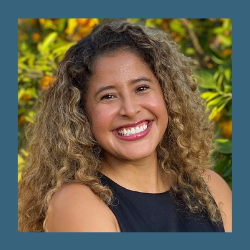Feb
4
2021
Written by Anna Castro (Manager, SolidarityIs)
The first month of 2021 came with a series of shocks and surprises.
Among the surreal events of January, we witnessed what some in the media called a “David vs. Goliath story”: the people of reddit and Robinhood versus the hedge fund managers who patrol Wall Street. Essentially, people followed the advice of a group of redditors to prevent the shorting of Gamestock and AMC stocks, a move that hedge fund managers often take to manipulate the value of companies. As a result, hedge funds, who hold tremendous financial influence and power on Wall Street, saw huge losses and individuals outside of the financial world make a profit.
While this was not intended to be a structural attack on the corporate greed that pervades Wall Street, the Gamestop episode had me wondering about what we might learn and apply from the standpoint of how cultural resets can offer an opportunity for collective consciousness building.
I wasn’t alone in making that connection. Sonya Renee Taylor, the author of of The Body is Not An Apology, noted:
If the GameStop people could do it for GameStop, we could certainly do it for Black people. We could certainly do it for people of color. We could certainly do it for trans people. We can certainly do it for disabled folks. If it’s all made up, what are we gonna make up? That’s the question.”
Here are some of my takeaways.
1. Tackling power is a winning strategy and narrative.
Clearly, hedge funds weren’t ready for what happened given the turmoil in the market. The people of r/WallStreetBets destabilized and demystified an industry that’s purposely made to feel elite and out of reach from the rest of society. It struck a chord with a lot of people and kept the issue in the news.
In this instance, the financial sector, which benefits from the idea that those who work on Wall Street have knowledge and skills that are elite and only accessible to the extraordinarily wealthy, experienced a much needed moment in the hot seat. A group of redditors spurred action, condemnation, and glee and we learned that the “elite” can lose at their own game.
For those of us who are part of campaigns targeting entities with power, we often wonder what will get the attention of the public. Framing our causes in the context of shifting the imbalance of power could be a winning strategy and narrative. And, identifying the right targets and their vulnerable points can be just as important as we learned from the GameStop episode.
2. Let’s get creative with our direct actions.
I’m an “out on the streets, stopping traffic” type of organizer because power needs to be stopped and challenged in its home turf. However, it is not the only tactic available to movements and it requires dedication and discipline for it to be safe and accessible for all. GameStop reminded me that digital organizing and these internet streets are teeming with possibility and energy.
For nonprofit staff, we could think about working more closely with digital strategists, experimenting with new tactics, and ensuring accessibility to people who use screen readers, don’t speak English, or are disabled.
3. Nurturing and cultivating our base is an investment. Let’s do it!
r/WallStreetBets has been active for years. They adopted GameStop as a cause months ago although their message erupted into broader action only in January. Their reddit thread now has over 8.5 million followers, likely from people who saw the potential to have their own GameStop moment.
In our movement building work, we have a day one, ride-or-die base that spreads our message everyday. They are people who are invested in the core mission of our work. In our organizations, we could think about better equipping our bases with the knowledge, resources, and infrastructure to take action when an opportunity strikes. How can we better cultivate existing leaders?
4. Are we prepared for a win?
Robinhood did not anticipate what happened and had to shut down its operations, which led me to think about the tipping points that sometimes occur in social change. Many of us have had the experience of working on campaigns for years and sometimes, finding ourselves on the winning side. But it can come at a cost. For Robinhood, it was that their explosion of popularity and usage either angered their benefactors or that they simply didn’t have the capital to manage the amount of traders. For nonprofits, we can fail in making our victories meaningful by not taking into account the resources required to implement a win.
To address this, we can be thinking about the capacity of staff in developing campaign plans and timelines. Are we leaving room in our planning for assessing and understanding the scope of potential victories, and what it will take to implement it or make the win meaningful?
In social change work, it is vital to our success to find the time and emotional distance to analyze our campaigns for key takeaways. The r/WallStreetBets, GameStop, and Robinhood episode gives us an opportunity to analyze something more or less organically driven by people, and as organizers, we can experiment with these tactics to sharpen our movement building work.

